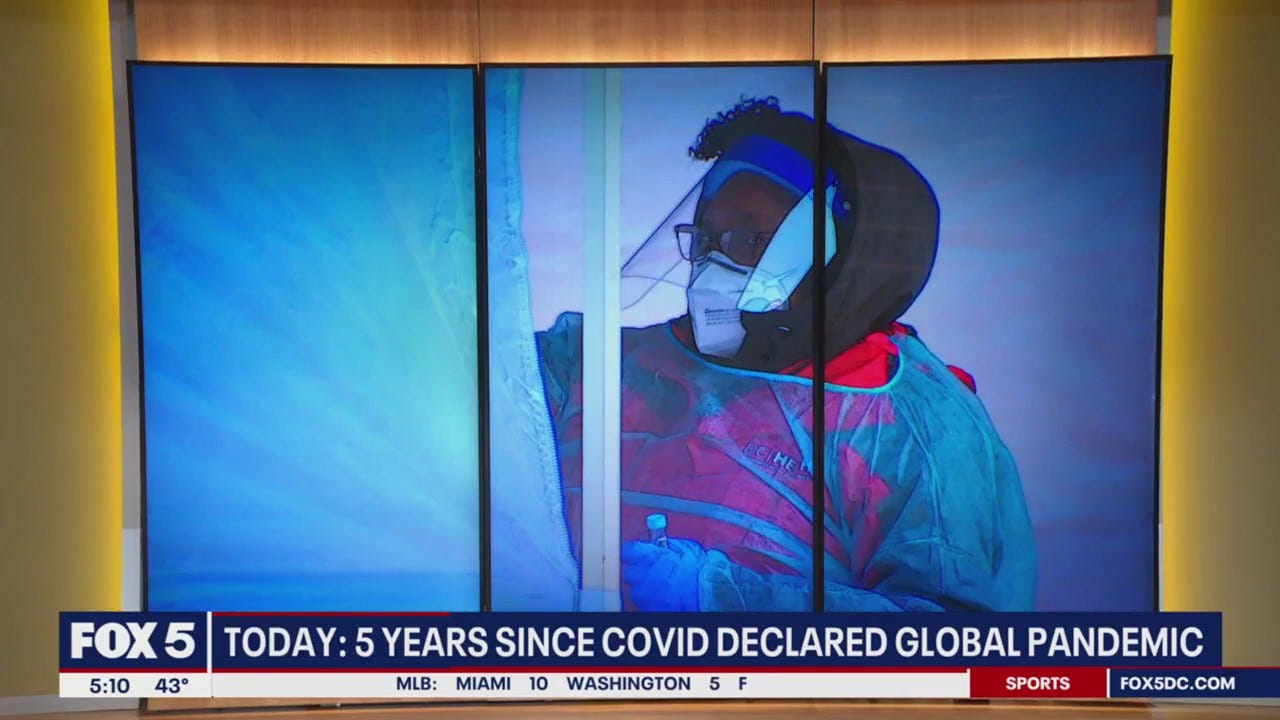Can a research ban save us?

5 years since COVID-19 declared a global pandemic
Tuesday marks five years since the start of the COVID-19 pandemic. On this day in 2020, the World Health Organization declared a global pandemic, triggering lockdowns across the world.
Fox – 5 DC
Kate Adamala had been working on something dangerous.
At her synthetic biology lab, Adamala had been taking preliminary steps toward creating a living cell from scratch with one key twist: all the organism’s building blocks would be flipped. Changing these molecules would create an unnatural mirror image of a cell, as different as your right hand from your left.
The endeavor was not only a fascinating research challenge, but could be used to improve biotechnology and medicine. But as Adamala and her colleagues talked with biosecurity experts about the project, grave concerns began brewing.
“They started to ask questions like ‘have you considered what happens if that cell gets released or what would happen if it infected a human?'” said Adamala, an associate professor at the University of Minnesota. They hadn’t.
So researchers brought together dozens of experts in a variety of disciplines from around the globe, including two Nobel laureates, who worked for months to determine the risks of creating so-called “mirror life” and the chances those dangers could be mitigated. Ultimately, they concluded, mirror cells could inflict “unprecedented and irreversible harm” on our world.
“We cannot rule out a scenario in which a mirror bacterium acts as an invasive species across many ecosystems, causing pervasive lethal infections in a substantial fraction of plant and animal species, including humans,” the scientists wrote in a paper published in the journal Science in December alongside a 299-page technical report.
Report co-author Vaughn Cooper, a professor at the University of Pittsburgh who studies how bacteria adapt to new environments, said it’s hard to exaggerate the possible threat mirror life could pose, if the world doesn’t unite to ban further research
“A mirror cell poses a level of threat that is well beyond anything that has ever existed on this planet because, again, it has never existed on this planet,” Cooper said. “And it’s simply not worth the risk that biosafety mechanisms be built to control it.”
What is mirror life?
The building blocks of all known life have one of two specific orientations, a property known as chirality. DNA, for example, is made up of “right-handed” components called nucleotides while proteins are made from “left-handed” amino acids.
In a mirror cell, the chirality of these molecules would be reversed. In theory, researchers said, the mirror cells would be able to live and grow the same way ours do.
How mirror life could become an existential threat
Adamala said part of the motivation to create mirror cells is that they wouldn’t interact with the world the same way natural cells do. That is also what makes them dangerous.
For example, Adamala said some medical treatments that use cells can trigger an unwanted response in a patient’s immune system, making them sick while simultaneously curing their underlying disease. That wouldn’t happen in a treatment using mirror cells because our immune systems wouldn’t recognize and attack them.
But that also likely means that mirror cells would be able to replicate unchecked in our bodies, creating a fatal infection that could progress rapidly without triggering our defense system, said Cooper.
“It’s plausible, for instance, that if this were built and someone were accidentally infected, they would probably go home and not know they are infected for some period of time while this population grows,” he said, adding that this could occur in other animals and plants too.
Mirror cells could also wreak havoc on our environment more broadly if they escaped a lab. Even if the first mirror cell “was kind of a weakling,” Cooper said it would have an incredible competitive advantage over other bacteria because it would have no natural predators.
Cooper initially thought mirror bacteria would eventually die off due to a lack of food, but there are enough molecules that are neither right-handed or left-handed to sustain them. Though labs that work with dangerous substances generally have rigorous containment procedures, they are not infallible and any chance of a mirror cell escaping is too high, Cooper said.
Research detente reached, but new laws needed
Cooper said it’s not yet possible to build a cell from scratch, mirror or otherwise, but researchers have begun the process by synthesizing mirror proteins and enzymes. He and his colleagues estimated that given sufficient resources and manpower, scientists could create a complete mirror bacteria within a decade.
But for now, the world is likely safe from mirror cells. Adamala said virtually everyone in the small scientific community that was interested in developing these cells has agreed not to as a result of their findings.
The paper prompted nearly a hundred scientists and ethicists from around the world to gather in Paris in June to further discuss the risks of creating mirror organisms. Many felt self-regulation is not enough, according to the institution that hosted the event, and researchers are gearing up to meet again in Manchester, England, and Singapore to discuss next steps.
“I think the risk is so big that this kind of work should not be done,” said Jörg Hoheisel, emeritus division head of the German Cancer Research Center, who attended the meeting in Paris.
Adamala said she’d like to see the creation of a treaty barring the development of mirror cells worldwide, similar to the United Nations’ Biological Weapons Convention. She thinks that’s unlikely because the political challenges of passing international laws, but hopes that individual countries and research funders will agree to abandon the pursuit of mirror life.
“This is a really good time to talk about it, because we can actually stop it before it happens,” she said. “This is a very rare, unusual chance for us to mitigate a risk that is not actually on our doorsteps.”